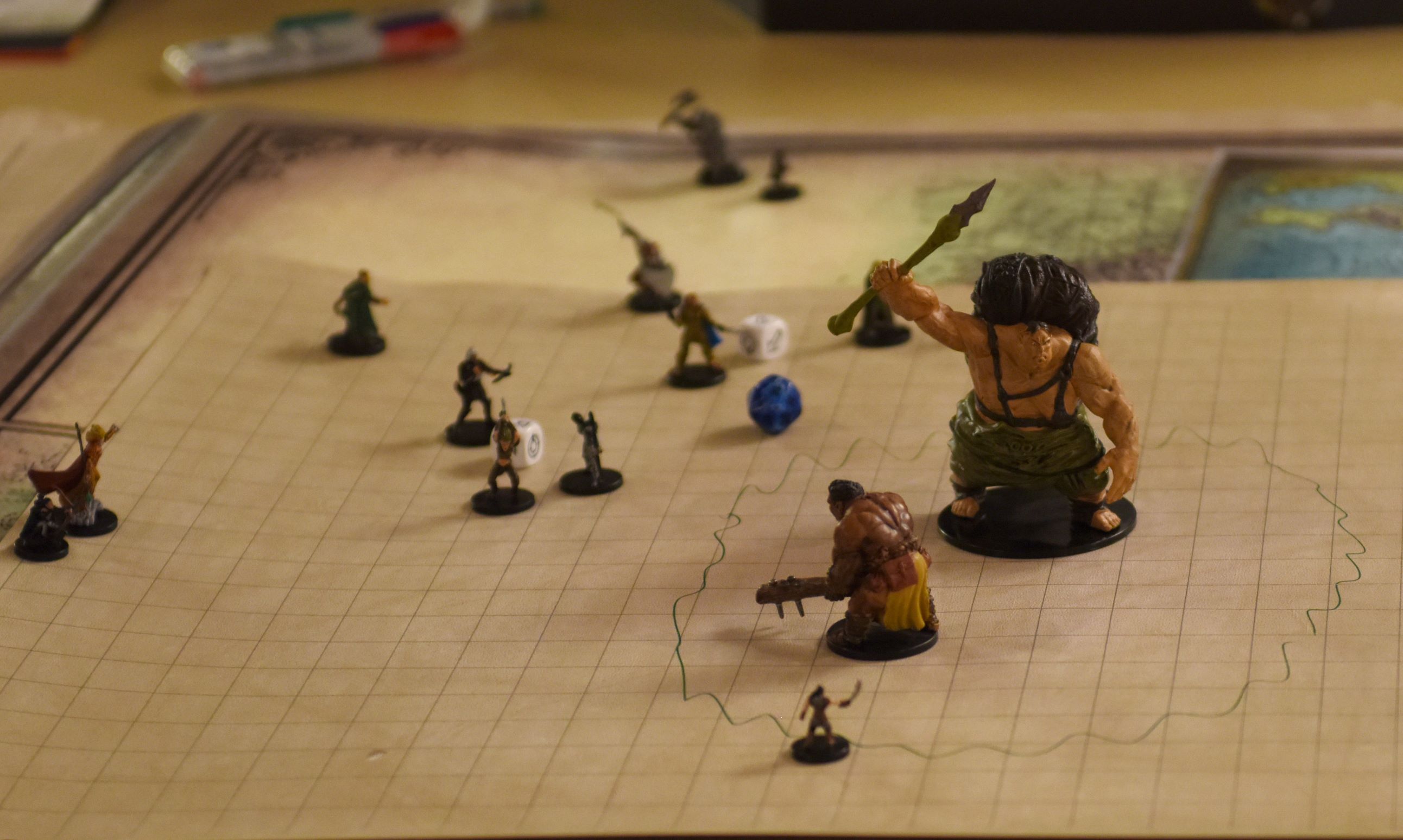We’ve all been there. You carefully crafted a robust story involving war, intrigue, adventure, and cool battles. Then your players decide to do something completely different and miss it all. Let’s explore some ways we can help them choose the right path without simply choosing it for them.
Dear DovahQueen: I’m not always the most insightful gm. I’m all about passion and dreams of adventure. I run high fantasy games with lots of magic and the world is whimsical just like I am in my personal life. My players are often more logical and poke holes in some aspects of my stories. One in particular. I admire his reasoning ability but he often takes the group around world events so that they’re just out fighting owlbears while wars rage and undead pillage the land. “It’s too dangerous” or “We wouldn’t make a difference anyway” are common phrases at the table. How do I get them to engage? How can I connect better with them? How do I keep stories alive and keep them from descending into murder hobo purgatory?–Dracophile
Dear Dragon Phil: I think that this exact situation is probably the single most common problem GMs have. Let me start off by telling you that while frustrating, this isn’t a situation where you or the players are doing anything wrong. That doesn’t make it any easier for you, though, when your story is being foiled by players just doing their best to play in character. If this player’s character is a pessimist and/or coward, then phrases like that are examples of solid roleplaying. Despite that, you still having lovingly-crafted plot points and set pieces that are not being experienced as they rightfully deserve to be. In a lot of ways, figuring out how to get your PCs to do what you need them to can feel really difficult, but I want to tell you that it doesn’t have to, and you can make sure that your story gets told without railroading the players. It all has to do with the reasons that the players should care about your story. When you’re planning your grand battles, skeletal invasions, and monstrous plagues, you need to ask yourself for what reasons do the PCs have to be present. You can never guarantee that your players will push the story forth, but you can attempt to play their own convictions and self-interest against them.
A common place to start is with the moral high-ground. Frankly, I won’t recommend this, because “It’s the right thing to do” doesn’t actually sway a lot of players’ motivations. If you need a reluctant to hero to move themselves to a battlefield despite it being too dangerous, consider their ties to the land being fought over. One perfectly good method, if not a bit of a cliché, is familial ties; if that character has children that live there, they may be likely to do something to aid in the war effort. Maybe they own a small shop next to Main Street. The point is to give them a reason to care about the outcome of the battle. Even if they’re not comfortable wading into the frontlines, they can always experience some of the plot that happens before and after a battle. Wars need intel, and somebody has got to get it. Likewise, post-battle, somebody needs to tend to the wounded, secure spoils, and do the dirty work of scavenging what remains. None of these may be the medium by which you intended to move the plot forward, but they’re all capable of telling a story on their own. A looted corpse could contain a mysterious letter or signet ring. A wounded soldier might have quite the story to tell. One of the things that worked best for me was to hand one particular player a physical letter in real life. The text was photoshopped to look like parchment paper, it was rolled up with a paper seal that needed to be broken, there were smudges on certain words that were the pieces to a hidden warning if he was smart enough to decipher it.
Another way you could keep them engaged is with something that only they can do at the set piece. Sure, being the chosen one is super-cliché, but there are other ways you can go making them, as individuals, important. Consider mundane heirlooms, uncommon skills, or even secret knowledge that only the PCs have that could turn the tide of the battle. A third easy one: give them a reason to want to see the antagonists eat the dirt. Maybe there’s an old family feud with the opposing house, or perhaps the enemy general butchered the lovable animal companion. Honor, courage, and commitment are fine and all, but I find that players are more motivated by revenge, spite, and pettiness.
“So what you’re telling me is that if someone could get that weird orb away from that smug a**hole, who will be majorly distracted while he’s leading his undead horde into battle, all of the skeletons will shut down and the town will be saved? Man, it would be SO GREAT if we knew SOMEBODY who COULDN’T STOP PICKING THE POCKETS EVERY STINKING NPC WE MEET!!!” – Torjack, the Fighter, to the GM while glaring at Emerson, the Rogue
I recommend that you attempt to use as many of these ways as possible with your players. You know them best and you know which methods per which characters have the most chance of getting them to make an appearance at the murder-party. One character’s amulet from their grandfather might unlock the last seal, another character might have sworn an oath to destroy the vile cult, and someone else could have helped build that village, brick by brick, with her father who’s grown too feeble to help protect it anymore.
No matter how well you plan though, and no matter how good the reasons may be, some players are simply going to be obstinate. Not every person who rolls the dice can “feel” for their character or invest in the narrative. Don’t worry, there’s way you can reach them too. These players do enjoy the game, and they’re only trying to play the way they enjoy the most. Oftentimes, that means they’re murderhobos: they only want loot and XP. I find that the best way to deal with this is to fully embrace it as the GM. Not pander, but really like them feel the weight of their actions. Don’t wanna defend the town from the undead army? Fine, deal with living in an undead apocalypse where there are no shops to sell your loot to. Wanna murder anyone you can and steal their stuff? Deal with detectives, guardsmen, and pitchfork-mobs hot on your trail. Let the main story unfold around them while they’re locked in the stockade. They might change their tune real fast when everyone is too busy evacuating to unlock their murderhobo butt. It might even be a really cool plot arc when the other party members have to attempt a rescue because they need their criminal brethren to accomplish the more important story arcs.
As GMs, sometimes we feel like its our job to help our PCs out of the holes they dig themselves in. Don’t. Let them sit down there and think about what they’ve done. Let me end with something that a good friend once told me. “If the players don’t want to play in your story, then they don’t want to play in your story.” If that’s the case, you might have to figure out what kind of story they are wanting to play in and tailor to that. Best of luck!
You can request RPG advice or send your questions by email to deardovahqueen@gmail.com or on Facebook.





